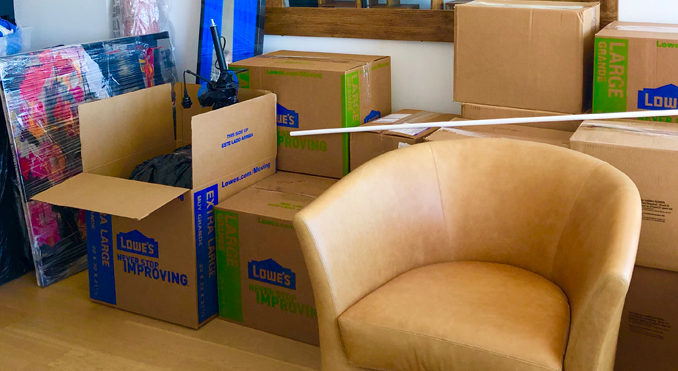
June 2021
Attachment to Stuff
Summer is here and we are freer to socialize, which means we are home less often, with less time to be surrounded by our “stuff.” Maybe more stuff has been acquired over this last year, and the idea of spring cleaning is a bit more overwhelming. How do we let go of what we truly do not need, and edit our spaces and trim the excess?
Objects can function as extensions of ourselves and our personalities, especially if the marketing behind those items is powerful. Are we the clothes we wear, the cars we drive, the technology we consume? What do these things signal? Are the things we already own a product of a legacy or memory of someone else? Do we confuse objects with people?
These concepts start at a young age, and are perpetuated by peer pressure, societal perceptions, and subtle messages to increase material consumption. Saving art, celebrity mementos, and heirlooms can contain the same magical thinking as the blanket favored by a toddler; this object holds magical power. This is our projection, not necessarily reality. There is a strong link between attachment to material items and less self-confidence. Young adults take great care to signal their identity through their cars and clothes, especially how they are cared for, decorated and personalized.
When we are older and more settled, our homes can become a collection of possessions to signal what we know, where we travel, and our sense of style. Do your things function as a uniform, indicating what group you belong to and what is meaningful to you? And what happens if we part with these objects?
In the cases of natural disasters, loss of our things can feel traumatizing. Losing our things feels like losing memories and our identities if we are too attached. When we voluntarily free ourselves from our things, it can be to deliberately forget memories and moments. Does our attachment change as we get older or is this something we have to deliberately cultivate?
If we step back and assess, there are few things we “need” and many that we want. Many things are no longer useful or practical, so why hold on? If there are things you have not used in a year, would not bring on an extended vacation, and would not grab if your home was on fire, chances are you can let go. And just like extensions of ourselves, if we do not pay attention along the way, the process of letting go becomes daunting.
After initially letting go of excess things, a liberation follows. Its noticeably calming to be in a clean space without clutter, so why not make that your daily environment? Keeping what is beautiful and essential is a wonderful way to live. Objects can be a distraction that keeps us from living in the moment. One of the lessons this year has been to live in the moment. It may be time to let go of the excess and focus on the essentials.

